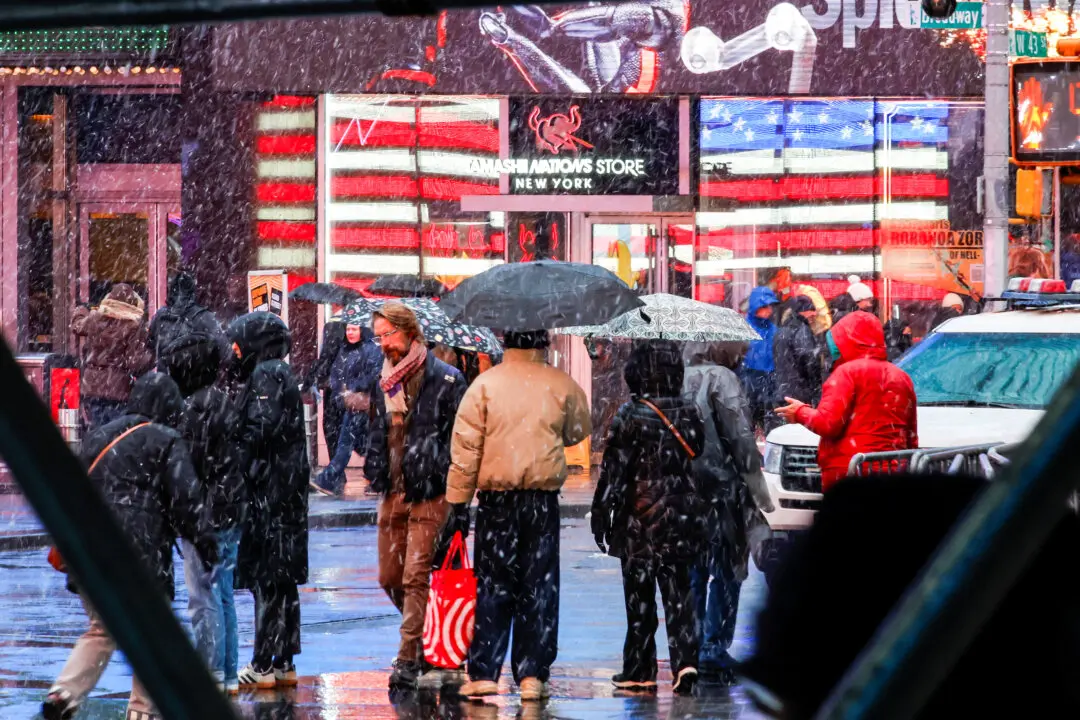BEIJING—An award-winning Chinese photographer has been arrested in China’s far-flung western Xinjiang region, his wife said on Dec. 13, though it is unclear on what charges he is being held.
Lu Guang, a three-time World Press Photo award winner, had been invited to take part in photography events in the regional capital, Urumqi, in late October, his wife, Xu Xiaoli, said last month.
She lost touch with her husband on Nov. 3 while he was traveling alone in the southern city of Kashgar and has not heard from him since, Xu said at the time.
Xu told Reuters by telephone from New York City, where she lives, that police in Xinjiang’s southern city of Kashgar had informed the family of his arrest.
In a post on Twitter she added that the family had hired a lawyer but they had not received any written notice about the case.
Kashgar police did not answer telephone calls seeking comment.
In an interview with The Associated Press in November, Xu said that Lu never had problems with the police before.
“He has a strong sense of social responsibility. ... He believed, after confronting the faces of the destitute, that there were things that people should know ... he believed that (his photos) might motivate them to help others, to trigger change and make things better.”
Lu won numerous awards for his photography, including Germany’s Henri Nannen Prize in Photography and a National Geographic Photography Grant, according to his profile on the World Press Photo website.
Lu’s prize-winning work has largely focused on sensitive environmental and social issues in China, including industrial pollution, drug addiction, and people living with AIDS.
Beijing has faced an outcry from activists, academics, foreign governments, and U.N. rights experts over mass detentions and strict surveillance of the ethnic Uyghur minority and other Muslim groups in Xinjiang.
In August, a United Nations human rights panel said it had received many credible reports that a million or more Uyghurs in China are being held in what resembles a “massive internment camp that is shrouded in secrecy.”
Uyghurs and other Muslims held in concentration camp-like facilities, known as “re-education” centers, are forbidden from using Islamic greetings, must learn Mandarin Chinese, and are forced to sing propaganda songs, according to a report by Human Rights Watch.
U.S. lawmakers introduced legislation on Nov. 14 urging a stronger response by the Trump administration to China’s crackdown on minority Muslims, including possible sanctions against a senior official and a ban on export of U.S. technology that could be used by Beijing in the surveillance and mass detention of ethnic Uyghurs.
Over the years, Xinjiang has been transformed into a vast security state, packed with police stations, street cameras, and security checkpoints at which electronic identity cards are scanned.
The Chinese regime has used the excuse that Xinjiang faces a serious threat from Islamist militants and separatists who plot attacks and stir up tensions with the ethnic Han Chinese majority to crack down on the local population in Xinjiang.
Western countries including Canada, France, Germany, and the United States have urged China to shut down camps in Xinjiang.





